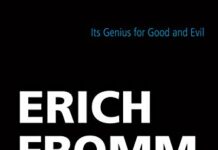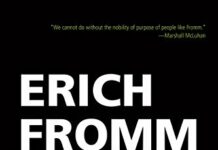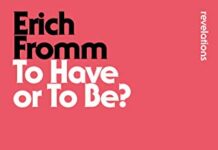
Ebook Info
- Published: 2013
- Number of pages: 128 pages
- Format: PDF
- File Size: 1.66 MB
- Authors: Erich Fromm
Description
An exploration of what religion and spirituality mean to us as humans, by the New York Times–bestselling author and social psychologist. In 1950, Erich Fromm attempted to free religion from its social function and to develop a new understanding of religious phenomena. Rather than analyzing what people believe in—whether they’re monotheistic, polytheistic, or atheistic—Fromm presents an idea of what religion means in secular terms. In his timeless and straightforward style, Fromm unmasks the alienating effects of any authoritarian religion. He reveals how a humanistic religion is conducive to one’s own humanity, and explains why psychoanalysis does not threaten religion. Whether you’re a believer or a long-time atheist, Fromm’s erudite analysis of religion is sure to reshape your concept of spirituality. This ebook features an illustrated biography of Erich Fromm including rare images and never-before-seen documents from the author’s estate.
User’s Reviews
Reviews from Amazon users which were colected at the time this book was published on the website:
⭐Read this a while ago and recently took it with me on a plane to read again. Such a smart book. Ironically though, this book points to some sort of spiritual truth rather than negate it. It’s not that Fromm seeks to do this so much, but he lifts a lid off the “system” and it’s falsity which paves the way to a higher mysterious truth that is buried in most “mass organizations governed by a religious bureaucracy” as he puts it. It’s strange that this book does this. It’s a very wise approach to the problem that most great religions have created. It’s an honest in depth look at it all rather than the usual way some people respond to religion these days which is to disregard them with superficial reasons rather than to dig deep into the psychology behind it all. When going beyond that psychology, the discovery is there must be more, but we never get it right in our man made systems which are often developed from fear and the need to control rather than faith which is an embracing of mystery that we will never fully have all the answers for.
⭐I had trouble rating this. The biggest failing is that Fromm really has only a layman’s grasp of what religion is and consequently makes dumb statements like “secular religion”. He confuses Weltanschauung with religion and they are not necessarily the same thing. He also makes some fairly trite comparisons with religion and psychoanalysis. The bulk of the book is a commercial for his particular brand of humanistic Neofreudianism viz. classical Freudianism. It is not his best book.
⭐Good read
⭐as described
⭐Fromm had previously expressed all the ideas he offers here.
⭐It’s historical…with a grain of truth…well written
⭐great
⭐Excellent !
⭐In the preface to this book Fromm states that it is a companion book to his investigative analysis of ethics
⭐Man for Himself: An Enquiry into the Psychology of Ethics (Routledge Classics)
⭐in many respects it feels like a continuence and if you enjoyed that book or any of the ones available from Routledge Classics you’ve got to read this.On the other hand this is classic Fromm, so much so that it seriously rivals the “Creedo” at the finish of
⭐Beyond the Chains of Illusion: My Encounter with Marx and Freud (Continuum Impacts)
⭐as a definitive statement of his thinking.All the common threads are here, a preoccupation with structural, particularly economic, determinism of character, an affinity for religosity particularly the old testament prophets, Jewish and Christian mystics, zen buddhists and summary followed by critical evaluation of Freud and Jung (more so Jung than Freud but he is not as unfair as some commentators).Besides fans of Fromm, I believe that this would appeal to general readers too but those who have a tendency to philosophise, think deeply and reflectively or people interested in the perrenial debates between athiests and deists or monotheists about truth. Fromm makes a lot of good points, he is unquestionably an athiest himself, at least in the opening chapters when he considers this most unambiguously. However, the narrative is odd, in the later chapters he appears to seriously consider scriptural and religious sources which while theistic eschew speculation about God as idolatrious. He is always respectful without being unreflectively conservative or disguising his own convictions. It could simply be that he finds the metaphysical speculation tedious and wishes to refocus the attention on worldly independence and freedom (indeed this is his argument).There is a good contents but the edition I have (Bantam Books, hardback, small with a gold star emblem on the cover flagging the book as by the author of
⭐The Art of Loving: Classics of Personal Development
⭐)does not have an index. The contents breakdown as follows:- Foreword; The Problem; Freud and Jung; An Analysis of Some Types of Religious Experience; The Psychoanalyst as “Physician of The Soul”; Is Psychoanalysis a Threat to Religion?Fromm suggests a definition of religion as providing two an ethical orientation and an object of devotion, he suggests that by this definition there are many people who are religious who would not consider themselves so and indeed that many secular ideologies or philosophies behave as religions for individuals. There are resembelences in this respect between the narrative and the one he provides in
⭐The Fear of Freedom (Routledge Classics)
⭐(formerly published as Escape From Freedom and footnoted as such), especially with his references to Fascism, Communism, Capitalism and character appraisals of Hitler, Luther and Calvin. This is pretty good and Fromm’s criticism of authoritarianism is measured and never reductive about authority per se, I found that his thinking was here much refined on earlier writing. Fromm contrasts authoritarian religion with what he considers humanistic religion.Fromm presents both Freud and Jung’s theories, I feel that he was more charitable to Freud than Jung in this respect, he presents a synopsis of Freud’s thinking in The Future of an Illusion, religion and theism where pretty much anathema to Freud it appears and he thought it was nothing more than one expression of the Oedipus Complex. Fromm’s praise for Jung is really confined to Jung’s revisionism in which he expanded psychoanalytical theory beyond Freud’s reductive theorising about sexuality to a greater symbolism. I am unsure whether or not Fromm’s consideration that for Jung the unconscious was God is dismissive and unfair or as good a synopsis afforded by the space he would dedicated to summarising Freud and Jung’s theories.The chapter on physician of the soul refers to Jung’s observance that psyche and soul where originally interchangeable concepts, this chapter provides some interesting summary of psychoanalyical theories, including rationalisations, projections, repression and perhaps transference (although less explicitly so), there is also a little about attachment theory and atavistic character (shunning independence and freedom, prefering infantilisation or some earlier more dependent state of being). There are conclusions which are familiar, some how hackneyed and cliched by now, about religion and God serving psychological needs which have receeded, for instance praying for good harvests but while I consider this a confusion of supersitition and religion it doesnt spoil the narrative by being too laboured a point.The pace and style of the book is great, Fromm is sparing about citations and generally these are very good, perhaps he could be accused of selective citations to support his arguments but he is clear about his own prism, lense or perspective in interpretation of the same. Overall a really nice book for the thoughtful person, I’d actually say this would be a good bridging book for any adolescent, or perhaps anyone, thinking for the first time on the world and their place in it and traditions or conclusions from years gone by. Optimistc, life affirming and hopeful.
⭐Order arrived in good time and in good condition
⭐Loved it!
Keywords
Free Download Psychoanalysis and Religion (Terry Lectures) in PDF format
Psychoanalysis and Religion (Terry Lectures) PDF Free Download
Download Psychoanalysis and Religion (Terry Lectures) 2013 PDF Free
Psychoanalysis and Religion (Terry Lectures) 2013 PDF Free Download
Download Psychoanalysis and Religion (Terry Lectures) PDF
Free Download Ebook Psychoanalysis and Religion (Terry Lectures)





